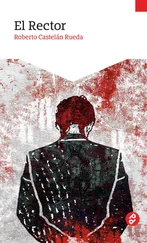“I’m hungry.”
“Eat something.”
“I don’t know how to cook for myself, but I’ll keep you company while you cook. That’s what I used to do in the old house. Sit in the kitchen and talk to Mandy. There was room in the kitchen there.”
“And in the new house there isn’t any?”
“There isn’t any room, and Mandy isn’t there either,” he said and sank into despair.
“Omelet or scrambled egg?” asked Bahat with forced brightness and made for the kitchen.
“Scrambled,” said Irad.
LIRIT TRIED ON HER MOTHER’S BURGUNDY BRA. SHE wanted to see if Mandy was right when she said in the Ramat Aviv mall that from the point of view of gravity they were both equal. Mandy’s bra was too big for her. Her mother was mistaken. She had only had a breast lift, not a breast reduction.
Now she was about to set out for a very important meeting on Kibbutz Kissufim, and she dressed with an elegance suitable to Israel, without too much joie de vivre. After exhaustive inquiries, in the course of which she had encountered the usual wall of silence encountered by people trying to clarify something (it being human nature to retreat when faced by the possibility of clarification, for all kinds of reasons of survival), she had reached a certain Oron de Bouton, who for some years had been growing organic cotton of the Pima variety on Kibbutz Kissufim, by sub-surface drip irrigation.
It took her a long time to understand what was meant by sub-surface drip irrigation, but the minute she understood she thought she was a genius.
Now she was on her way to find what it meant, in terms of threads and money, to get into the market of organic cotton.
Let the workers in the factory carry on making pajamas for the ultra-Orthodox sector until further notice, she said to herself. That was all for the best. And in the meantime she herself would carry on going ahead with her inquiries. It actually suited her for her father to be having some scene with himself and someone else as crazy as he was, who had also spent years of her life with spiders. Now she, Lirit, was truly free. It was ridiculous what her father was doing with his life when he could be sitting at home and making a decent living from regular textile, without all the sensations and headaches. After all, he wasn’t an idiot, he must know that the safest thing today was to go for textile that already existed, which he had at home.
Lirit was only twenty-two, and look how much experience of life she already had. There was no need to go to America, she added to herself, it was enough to go to Kibbutz Kissufim.
Even though she didn’t say so to herself in so many words, Lirit had been wounded to the depths of her soul by her father’s failure to return to Israel at such a difficult time, and she didn’t know if she could ever forgive him. There were probably cultures where they stoned people for this kind of thing without thinking twice. With all due respect to him and his Israel Prize, this time he had gone too far. She wasn’t going to forgive him.
Lirit had already found an outlet for her anger in the poor seamstresses at Nighty-Night. She took advantage of the atmosphere of anxiety surrounding them, and threw her weight around like a true autocrat, not of these times. Her mother would no doubt have been proud of her. Perhaps it was in her DNA.
And anyway, why shouldn’t they be afraid? What was she supposed to do about it? Life isn’t a picnic, Mandy would warn her whenever she was happy. She too was afraid of upsetting the status quo, especially if it was working well, but the status quo was so boring, and she knew that if she wanted to love this place (i.e. Nighty-Night), she was going to have to march it ahead. In the first place, change its name to something more up-to-date, transfer the production to China, which was several times cheaper than Turkey, and yes, let a large part of the workers go, with or without mercy. Instead of the fired workers, she would bring in ambitious young girls with gel and tattoos, graduates of the Shenkar Textile Design School, or talented foreigners, who had all kinds of weird ideas on subjects she had never heard of because with old Shlomi from Brosh on the border of Te’ashur she had stagnated. Now she wanted to get back into the swing of things.
The workers at Nighty-Night weren’t living on a cloud either, and they already knew that a big change was about to take place in their lives: perhaps they would join the ranks of the unemployed, and from there slide into the vicious cycle of poverty, from which it was very difficult to emerge.
Lirit thought that she deserved to be congratulated. Her mother died, and she didn’t break. On the contrary. She was strong and she was coping very well. She gave herself “Very good” in a teacher’s handwriting. She was doing everything. Bringing herself up-to-date while also going forward. Yes, indeed. In some sense, life was miraculous. From a disappointment to her parents, a nothing with a boyfriend twice her age — and now she could already admit to herself boring , so boring (someone who photographed floods and flowers, with cameras and lenses that nobody dared to show in public anymore) — she had in a few days turned into the industrious and independent owner of a factory, without any additions to her beautiful back, with perfect shoulder blades like the ones her late mother had in her youth, and she was about to enter the Israeli pajama market with something amazing by any standard, organic cotton of the Pima variety grown by sub-surface drip irrigation on Kibbutz Kissufim of the United Kibbutz Movement.
It was going to be a huge success! Because what did people have left to rely on if not their pajamas. Let them too be made of natural materials. Let the stuff that enveloped their natural nightmares be natural too, and fit in with them harmoniously.
They started to play an irritating song on the radio. In general, Lirit didn’t know three-quarters of the songs they played, which in her opinion was a shame and disgrace. She listened carefully to the words of the presenters introducing the songs she didn’t know, as if she was sitting in a math class and had to remember the equations.
She switched to another station and the strains of a different band began to proudly review the new composition of her life. Suddenly she grew melancholy. What are you doing? You have set aside the whole truth and contented yourself with only a very curtailed version of it. You have just deliberately narrowed your world. In truth, your life is in ruins. Your dearly beloved mother will never return, not even to quarrel with you, and your father has lost his mind somewhere in northern New York.
Lirit addressed herself in the archaic language she had learned from her Grandmother Audrey, whose limited command of Hebrew was of an outdated variety.
Lirit would say something like “look” and her grandmother would say “pray look” and suchlike expressions. Lirit liked talking to herself in this language, because it gave her the feeling of security she used to have with her grandmother as a child.
Grandmother Audrey believed that in order to master a language, you had to first learn a few flowery phrases, and only after that the basics. In this way, even if you weren’t fluent in the language, you learned the best of it, and even if you made mistakes, people would immediately understand how high you were aiming. Audrey Greenholtz repeated this to Lirit dozens of times, perhaps hundreds, until Lirit didn’t have the strength for her anymore, and then either Lirit didn’t answer her or she left the room in the middle of the repetitive speech.
Leave the future to its own devices! she accordingly said to herself. The time and tide will yet present themselves for you to set sail for New York to bring your father home. You have a million things to worry about before that.
Читать дальше












